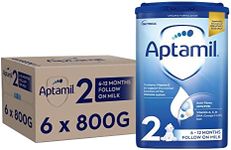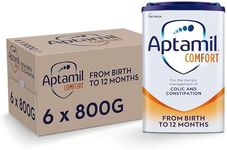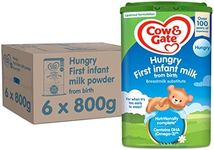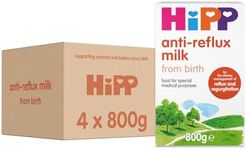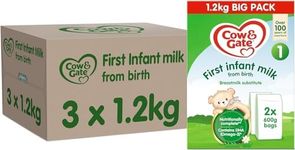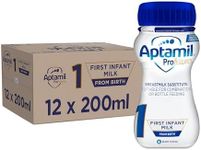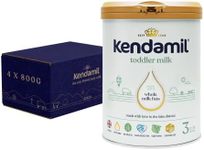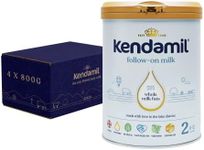Buying Guide for the Best Baby Formulas
Choosing the right baby formula is crucial for your baby's health and development. It's important to understand the different types of formulas available and the key specifications that can help you make an informed decision. Always consult with your pediatrician before making any changes to your baby's diet.Type of FormulaThere are several types of baby formulas, including cow's milk-based, soy-based, and specialized formulas for specific health needs. Cow's milk-based formulas are the most common and are designed to be as close to breast milk as possible. Soy-based formulas are an alternative for babies who are lactose intolerant or have a milk allergy. Specialized formulas are available for premature babies, those with reflux, or other medical conditions. Choose the type that best suits your baby's dietary needs and any medical advice from your pediatrician.
Nutritional ContentThe nutritional content of baby formula is essential for your baby's growth and development. Look for formulas that contain the right balance of proteins, fats, carbohydrates, vitamins, and minerals. Some formulas also include additional nutrients like DHA and ARA, which are important for brain and eye development. Ensure the formula meets the nutritional standards set by health authorities and matches your baby's specific nutritional requirements.
Form of FormulaBaby formulas come in three main forms: powder, liquid concentrate, and ready-to-feed. Powdered formulas are the most economical and require mixing with water. Liquid concentrates also need to be mixed with water but are easier to prepare than powders. Ready-to-feed formulas are the most convenient as they require no mixing, but they are also the most expensive. Choose the form that best fits your lifestyle and convenience needs.
Allergies and SensitivitiesSome babies may have allergies or sensitivities to certain ingredients in baby formulas, such as cow's milk protein or soy. If your baby shows signs of an allergic reaction, such as rash, vomiting, or diarrhea, consult your pediatrician. They may recommend a hypoallergenic or specialized formula designed for babies with specific dietary needs. Always monitor your baby for any adverse reactions when introducing a new formula.
Brand ReputationThe reputation of the brand can be an important factor when choosing a baby formula. Established brands often have a history of quality and safety standards. Research and read reviews from other parents to get an idea of the brand's reliability and effectiveness. However, always prioritize your baby's specific needs and consult with your pediatrician over brand loyalty.
Price and AvailabilityWhile price should not be the sole factor in choosing a baby formula, it is important to consider. Ensure that the formula you choose is within your budget and readily available in your area. Consistency is key for your baby's diet, so you want to avoid frequent changes due to availability issues. Look for a formula that offers a good balance between quality and affordability.
